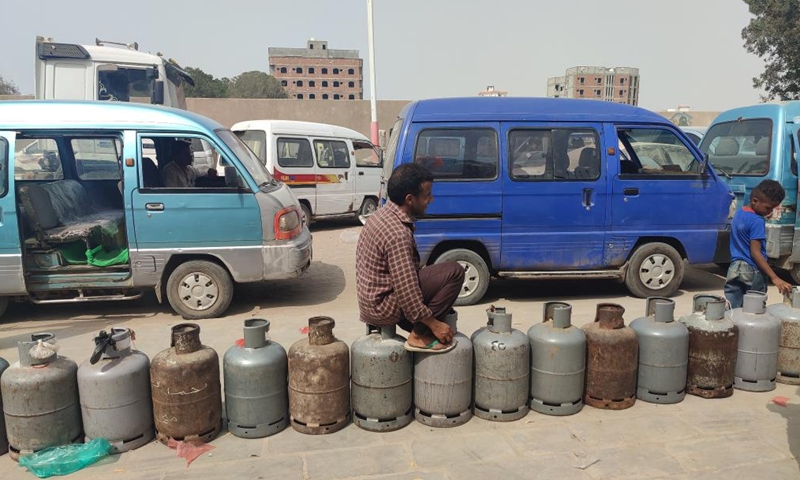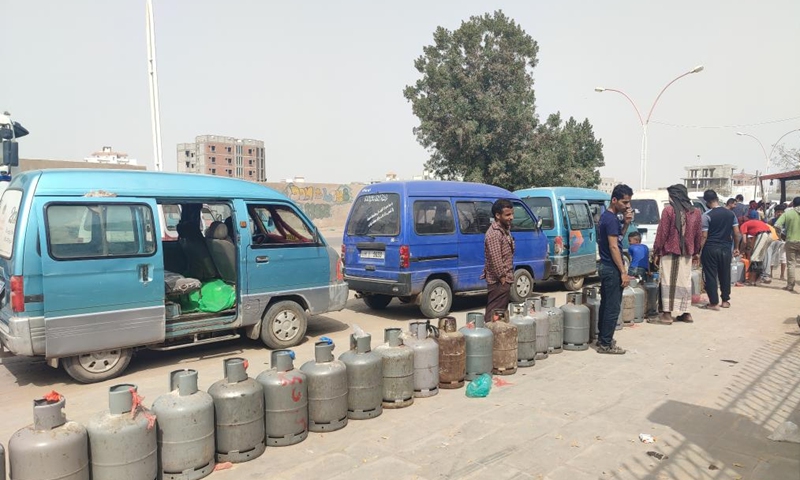
People wait to refill their cooking gas cylinders on a street of Aden, in southern Yemen, March 20, 2022.Photo:Xinhua
A severe shortage of cooking gas struck several regions of Yemen, multiplying the suffering of millions of people living in the war-ravaged Arab country.
During the past few days, many fuel stations in several main cities run out of cooking gas, forcing numerous bakeries to close their doors.
Officials told Xinhua that the gas shortage continued spreading and included new areas under the control of the internationally-recognized Yemeni government.

People wait to refill their cooking gas cylinders on a street of Aden, in southern Yemen, March 20, 2022.Photo:Xinhua
In the southern port city of Aden, Yemen's temporary capital, many people were seen lining up at fuel pumps waiting to refill their cooking gas cylinders.
"Every time, I spent several hours standing in line until I refilled my cooking gas cylinder, and this is much less than what I need," Ahmed Jalal, a man living in Aden, told Xinhua, adding that his family needs at least four gas cylinders to cook foods throughout the whole month.
"Because of the cooking gas shortage crisis, the quota is limited," Jalal lamented.
Due to the ongoing war, the production of gas is not enough to meet the high demand of the local market, an official of Aden's local authority told Xinhua on condition of anonymity.
"The inequitable distribution of gas also participated in creating this acute crisis as some provinces get fewer quantities of cooking gas supplies," said the official.
In other provinces controlled by the Houthi militia, lack of fuel and cooking gas has had a terrible impact on local people's quality of life and created a new woe.
Hundreds of vehicles are waiting in long lines in Yemen's capital Sanaa to get their tanks refilled as the ongoing fuel shortage keeps getting worse.
Yemen has been mired in a civil war since late 2014 when the Houthi militia seized control of several northern provinces and forced the internationally recognized government of President Abd-Rabbu Mansour Hadi out of the capital Sanaa.
According to some latest nationwide assessments by humanitarians, 23.4 million people in Yemen, or three-quarters of the overall population, need some form of assistance, said Martin Griffiths, UN undersecretary-general for humanitarian affairs and emergency relief coordinator.
The war has also accelerated Yemen's economic problems, pushing more families into destitution, which is among the largest drivers of humanitarian needs, Griffiths said.
Yemen relies on commercial imports for about 90 percent of its food and nearly all its fuel and other essential goods.
Fuel imports have also fallen sharply through Hodeidah port. Fuel volumes in February were less than half the average. This drop is contributing to fuel shortages and price rises, which are likely to become even more acute as the energy prices globally continue to rise, he said.
